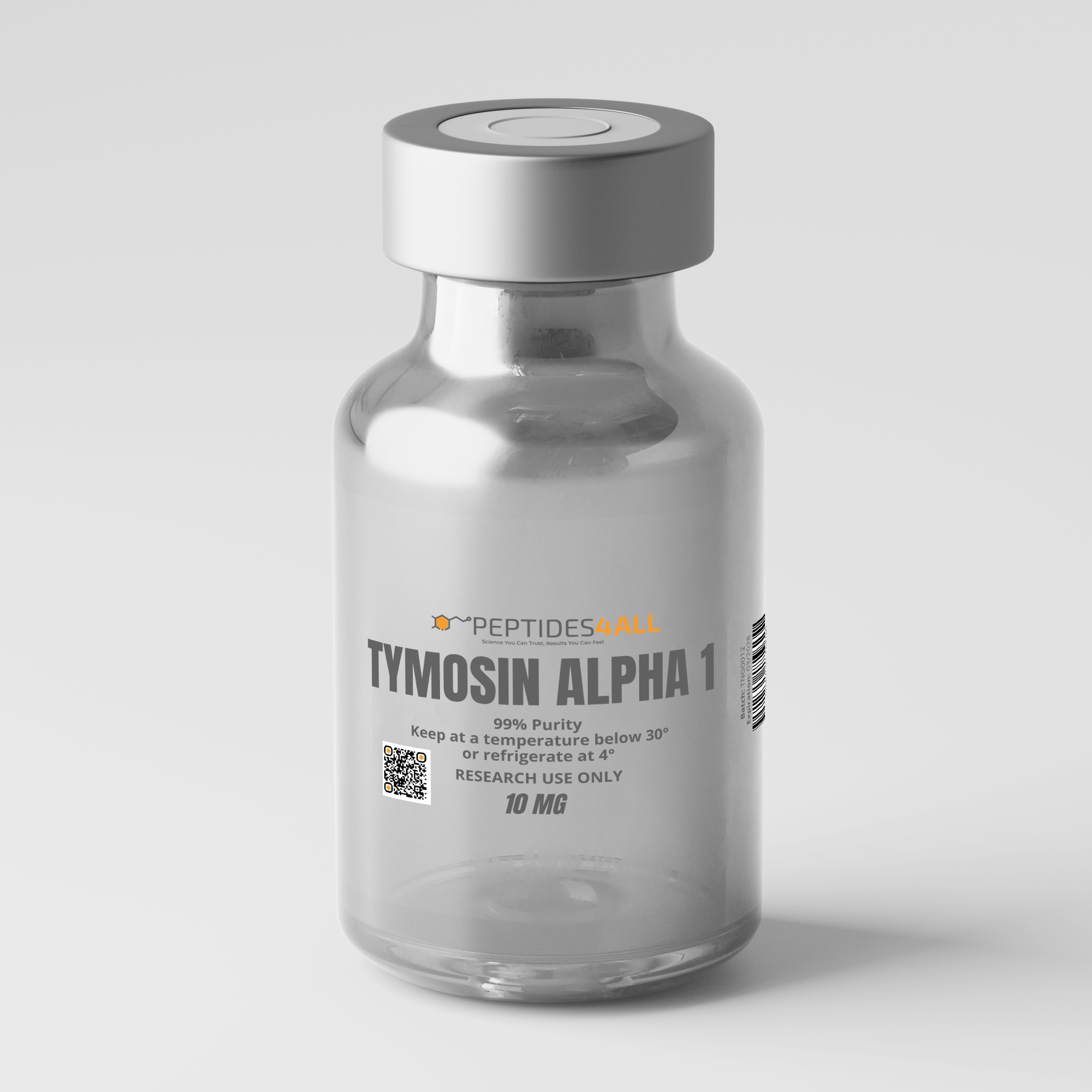Sequence: Ac-Ser-Asp-Ala-Ala-Val-Asp-Thr-Ser-Ser-Glu-Ile-Thr-Thr-Lys-Asp-Leu-Lys-Glu-Lys-Lys-Glu-Val-Val-Glu-Glu-Ala-Glu-N
Format: Acetylated Immunomodulatory Peptide
Chemical Description
Thymosin Alpha-1 is an N-terminal acetylated peptide consisting of 28 amino acid residues. It is chemically identical to the naturally occurring thymic peptide responsible for lymphocyte maturation. In the laboratory, TA-1 is studied for its capacity to interact with pattern recognition receptors, specifically Toll-Like Receptor 9 (TLR9) and TLR2. This interaction triggers intracellular signaling cascades (such as MyD88 and NF-κB pathways) that regulate the transcription of cytokine genes and surface markers on immune cells in vitro.
Research Applications
This compound is strictly for laboratory research use in the study of:
- Toll-Like Receptor (TLR) Modulation: Investigation of ligand-receptor binding kinetics and downstream signal transduction in dendritic cell cultures.
- T-Cell Maturation Assays: In vitro analysis of the differentiation of thymocytes into mature CD4+/CD8+ T-cells and the upregulation of Interleukin-2 receptor expression.
- Antigen Presentation Kinetics: Research into the peptide's influence on Major Histocompatibility Complex (MHC) Class I molecule expression on target cells.
Technical Specifications
- Molecular Formula: C129H215N33O55
- Molecular Weight: 3108.3 g/mol
- Purity: >99% (determined by HPLC)
- Appearance: Lyophilized White Powder
Presentation & Handling
- Form: Supplied as lyophilized peptide in sterile vial.
- Reconstitution: Use bacteriostatic water or 2% procaine; swirl gently (do not shake vigorously).
- Storage: Store at –20 °C, protected from light and moisture. After reconstitution, use according to research protocols and handle under sterile conditions.
Disclaimer: For Research Purposes Only
This content is provided strictly for laboratory research purposes and does not constitute an endorsement or recommendation for any non-laboratory application. The information provided regarding specific peptides is for educational and informational purposes only and must not be construed as medical, clinical, or legal guidance, nor as an encouragement for use in humans or animals.
Peptides described here are solely for use in structured scientific study by qualified researchers. We advise consulting with laboratory safety officers or research experts prior to handling these materials. The expectation of responsible, ethical utilization of this information for legitimate investigative and scholarly objectives is paramount. This notice governs all content on this site.
